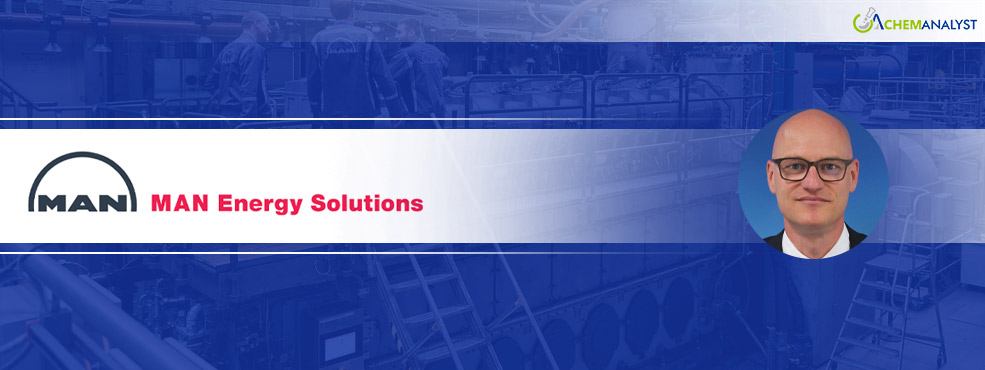Welcome To ChemAnalyst

MAN Energy Solutions has announced the successful retrofit of the main engine on the 'Maersk Halifax,' a 15,000 TEU container vessel, to a dual-fuel MAN B&W ME-LGIM engine. This pioneering project, carried out by MAN PrimeServ, the after-sales division of MAN Energy Solutions, is the first retrofit of a Very Large Container Vessel (VLCV) to operate on green methanol. The 'Maersk Halifax,' which entered service in 2017 with an original MAN B&W 8G95ME-C9.5 engine, has now been upgraded with an 8G95ME-LGIM Mk10.5 engine. This retrofit allows the vessel to operate on green methanol, a key step in reducing its CO2 emissions by 90%.
Along with the engine conversion, the vessel’s engine-control system was upgraded to MAN Energy Solutions’ latest Triton system. This upgrade is part of a broader effort to modernize vessels and support the transition to low-emission fuels. Following successful sea trials, the 'Maersk Halifax' has returned to service, now operating on A.P. Moller - Maersk's Trans-Pacific trade route. Leonardo Sonzio, Head of Fleet Management and Technology at Maersk, emphasized the company’s commitment to achieving net-zero emissions by 2040. He stated that retrofitting existing vessels with dual-fuel engines is a crucial part of the strategy to meet this ambitious goal. The retrofit of the 'Maersk Halifax' is expected to provide valuable insights for future projects. In fact, Maersk has already placed an order for MAN PrimeServ to retrofit an additional 10 vessels in its fleet to operate on methanol.
Michael Petersen, Senior Vice President and Head of PrimeServ Denmark, highlighted that retrofitting is one of the five key growth areas identified in MAN Energy Solutions’ ‘Moving Big Things to Zero’ strategy. He noted that retrofits are a cost-effective and efficient way for shipowners to drastically reduce CO2 emissions without commissioning new builds. Retrofitted engines have the flexibility to switch between different fuels with minimal disruption, ensuring continued operational efficiency and reliability. According to PrimeServ, there are over 4,000 existing marine engines worldwide that could be converted to operate on green fuels like e-methanol and e-methane, further supporting the decarbonization of the shipping industry.
At a recent event held at the Asia Pacific Dockyard in Zhoushan, China, Sarath Prasannan, Senior Vice President and Head of Region Asia Pacific at MAN Energy Solutions, spoke about the importance of this groundbreaking project in advancing the shipping industry’s efforts toward decarbonization. He expressed optimism that China’s policies and infrastructure will continue to support such initiatives, allowing shipyards to play a pivotal role in the reduction of the industry's carbon footprint. The successful retrofit of the 'Maersk Halifax' serves as a model for future retrofitting projects, demonstrating that retrofits can be a significant alternative to new builds in the transition to low-emission fuels. By converting existing vessels, the shipping industry can make a meaningful impact on reducing greenhouse gas emissions and achieving long-term sustainability goals.
We use cookies to deliver the best possible experience on our website. To learn more, visit our Privacy Policy. By continuing to use this site or by closing this box, you consent to our use of cookies. More info.
